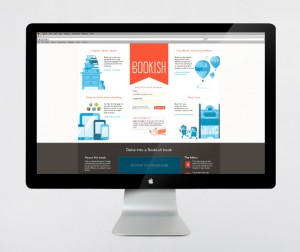
After a host of hurdles and delays, ebook discovery site Bookish is finally up and running. Along with ways to browse and then purchase ebooks through links to the major retailers or directly from the publishers themselves, Bookish offers commentary and essays from well-known authors, book reviews, and more.
What initially made Bookish stand out–and ultimately led to the delays that hindered its originally scheduled summer 2011 launch–was the never-before-seen engine that powered book recommendations for readers. The feature, which Bookish now has up and running, is the backbone behind what makes Bookish standout as a discovery site. Where other “suggested for you” features on sites take into account readers’ buying and browsing habits, Bookish incorporates other sources of acclaim in order to make recommendations.
While book discovery is important for readers in order to find new content to purchase, it is equally important for publishers. As bookstores continue to close or downsize, publishers are faced with competing for shelf space in ways they’ve never had to address before. With online stores, the opposite problem occurs: with unlimited shelf space, the stores are clogged with an almost unending supply of books. How do you make one title stand out from the rest so a reader can buy it?
Despite being funded primarily by three of the largest traditional publishers in the US, Bookish has stated that its editorial team will be unbiased in terms of the books that it chooses to highlight for readers, clearly stating that it cannot function if its purpose is actually to represent one publisher over another. With a goal of increasing book discovery for the readers as opposed to book selling for the publishers, Bookish will need to address titles from across the publishing spectrum in order to keep its audience.
Mercy Pilkington is a Senior Editor for Good e-Reader. She is also the CEO and founder of a hybrid publishing and consulting company.